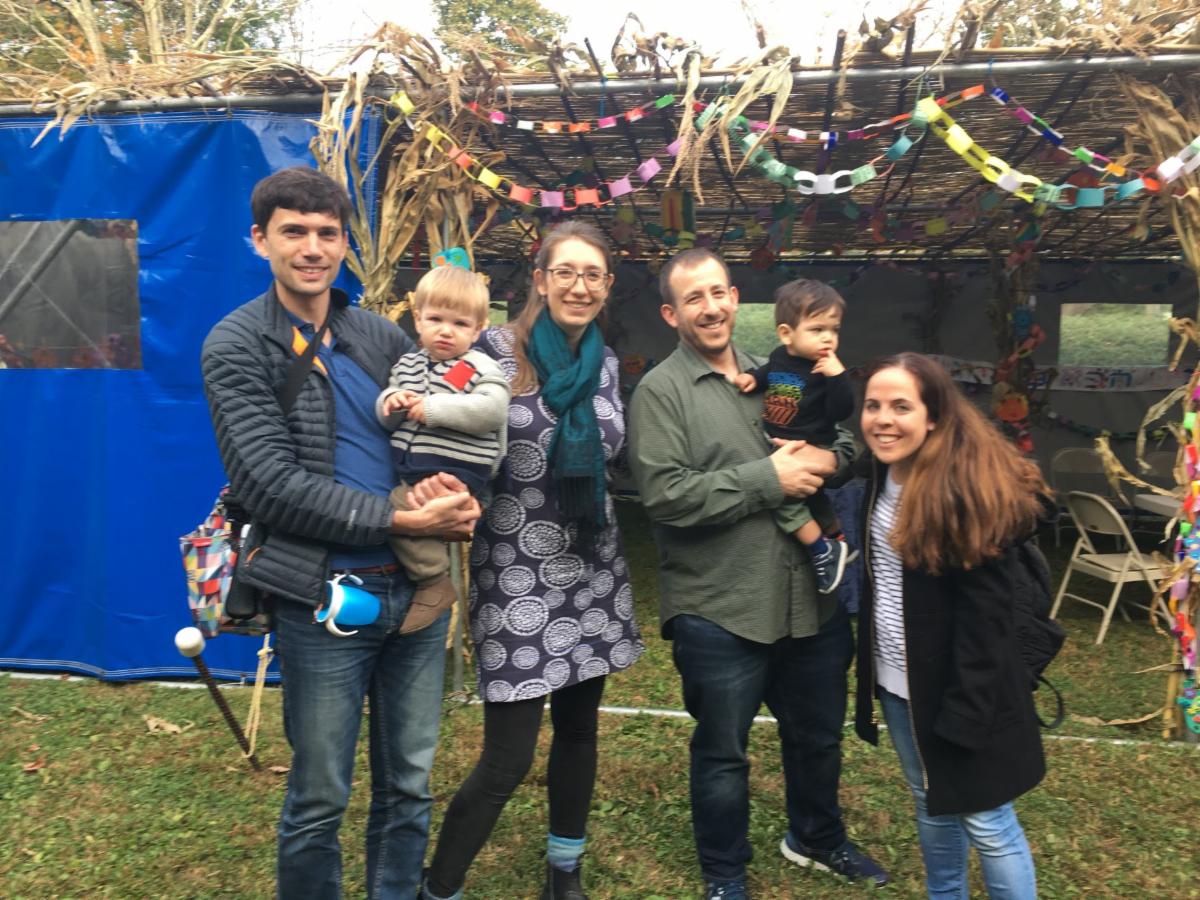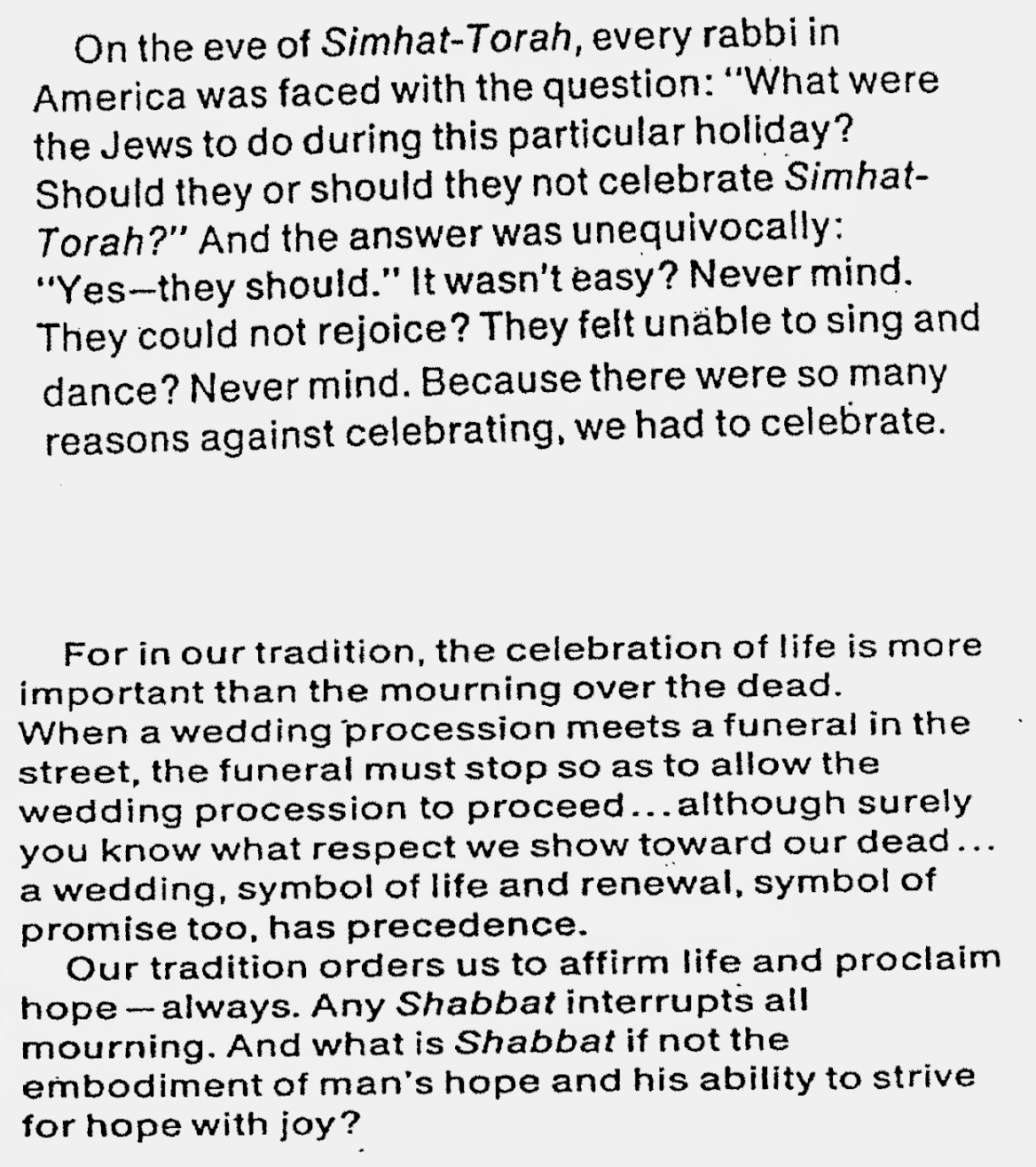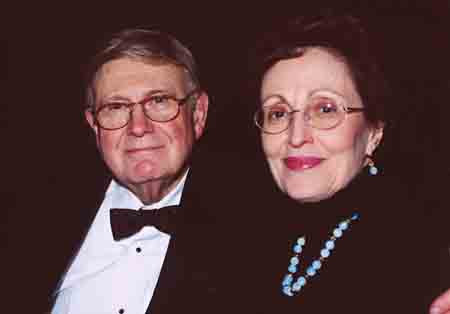When we recall Hazzan Sidney G. Rabinowitz, many images come to mind. For some, it is of the caring smile at bedside in the hospital, or that warm hand clasp at a house of shiva. For others it is the twinkle of an eye under the huppah. For many it is the word "e-nun-ci-ate," which first appeared in the nightmares of 12-year olds, then in their most cherished memories for the remainder of their lives.
But for me the most vivid memory is also one of the first. It was a simple greeting, in the humble spirit of Abraham. Not a bow, like we've seen from him so often on the High Holidays for Alenu, but with the same idea behind it. A sense of true humility, a desire for true friendship, a feeling that there is never a distance of status or stature, just two human beings, two with Yiddishkeit in their hearts, one reaching out to the other.
It was the day I moved in next door, in July,1987, and even before the first box was unpacked, there was Hazzan Rabinowitz, walking over to my driveway, with a basket of bread and wine in hand to welcome us. The Hazzan was sending a message that I understood immediately. For we read in the book of Genesis how Abraham was greeted by Melchizedek, the King of Salem, with bread and wine and a heap of humility, following an epic battle in which the two were allies. Since then, bread and wine have become a symbol of Jewish hospitality, and that king's city, later renamed Jerusalem, was to become a symbol of peace.
The sages asked, "Who is wise? The one who learns from all others," and Abraham learned well from this encounter, for we flash forward to Abraham as he is seeking a burial place for his wife Sarah, and he comes across the people of Heth, the Hittites. And the text says, "Vayakam Avraham vayishtachu l'am ha'aretz livnay heth." Literally, "And Abraham arose and bowed down to the people of the land, to the children of Heth." This verse is packed with the spirit of humility, with great "derech eretz" common decency, to "amei ha-aretz" to total strangers.
Rabbi S. Wagschal, in his book, "Guide to Derech Eretz," writes, "the essential ingredients of what we call derech eretz are: impartiality, humility, sensitivity towards the feelings and rights of others, an understanding of human nature; a sense of justice; and respect for each individual and for humanity as a whole." The rabbis taught that derech eretz as a norm of human behavior preceded the Torah by 26 generations, and in Pirke Avot we read, "Where there is no Torah, there is no derech eretz, and if there is no derech eretz, there is no Torah."
Hazzan Rabinowitz stood at the point, the pinnacle, where Torah and derech eretz intersected, and that is the secret to his great success and why we cherished him so. As our shaliach tzibur, he stood before God representing the entire congregation, not just the most accomplished ones, not just the wealthiest, not just the ones who come closest to moral perfection. The Hazzan reached down with all his strength, he dug his hands down into the earth, beneath the lowest of the low, and like a push from the diaphragm to reach the high notes, he lifts us all up to Godliness.
This is done with music and prayer, most visibly, and by all hazzanim. But it is what is least visible that distinguished Hazzan Rabinowitz from all the rest. It was the one-on-one bowing and digging and lifting, the hard-hat work of the spirit. It was knowing what is troubling dozens of families at all times; it was knowing how to reach scores of b'nai mitzvah students at the same time; it was answering every call, it was filling every need, and it was finding the time to do that without neglecting the needs of his own beloved family.
A reporter once asked me if I knew anyone who worked harder than Hazzan Rabinowitz. I replied, "Not even God. At least God takes a day off once a week." But to do God's work here on earth, that was a never-ending task, and for the Hazzan it was a labor of love. I saw that immediately in July of '87 - and even before he came to me with the bread and wine of the King of Salem. Because just days before, I had seen him by chance at the Kotel, in Jerusalem itself, as he escorted a Beth El group and I was there with a group from my old congregation.
You know, people love to talk about rabbis and cantors. It's universal. There's a whole genre of jokes about the intrigue that supposedly goes on. The competitiveness, the jealousies that are assumed must be there. The stories of rabbi-cantor battles are legendary. But, for the most part, that didn't happen here, and for a few key reasons: It doesn't hurt when the rabbi is from a cantorial family, and his father and uncle both knew and worked with our cantor. But most of all, it's because of the deep mutual respect we shared. Ours was a partnership, and one that we knew was precious to the Temple. Did we ever disagree? Of course! Did I ever win? C'mon! Get real! Who here ever said no to the Hazzan? Well I did. Once. So...who here ever said no a second time?
And the funny thing is that this partnership was forged even though we seemed to be predestined for conflict. After all, when I was brought here as assistant rabbi I was told that my prime responsibility would be to see to the spiritual development of the kids. I was here two days and said to the president, "C'mon. Whose kidding here? You've got the most active cantor in the country when it comes to youth involvement and you're asking me to do the youth?"
And yet, from day one, we found a way to work together that allowed us each to do what we do best for the congregation -- and we found that we were amazingly complementary. Conservative Judaism rests on the balance between tradition and change. The dialogue between the two of us created the synthesis that made for a dynamic Conservative congregation. Which doesn't mean that he was all tradition and that I was solely an agent of change. In fact, Hazzan Rabinowitz was one of the most innovative cantors around, and I often am a vigorous defender of the status quo. But the dialectic was there, and it was the engine that made us run. And yes, there was a slight generational difference, though both he and I realized that each of us, along with Rabbi Goldman, must be there for congregants of all ages. This balance helped all members of the congregation to feel that at least one clergy person was the exact right fit for their needs at that time.
And there are other ways that we complemented each other so perfectly:
He had daughters, I have sons. His dog was small and well trained, mine have been large and occasionally off the wall. I don't know about the two of us, but the dogs should really have been renamed Oscar and Felix. Maggie, the dog we had while we worked together, spent lots of time on Suzie's front lawn. And the dogs were actually a reflection of our different teaching styles. The styles were different, but the results were wonderful for the student who had the chance to worked with us both. Now I don't intend to compare Bar/Bat Mitzvah students with dogs here, but I am firmly convinced that I couldn't do what I do with the kids if he didn't do what he did so well. Most of the time, I got to be the "good cop."
The same was true for services, for all the life cycle events we did, for everything: Because he did what he did so well, and only because of that, could I do what I did, and pull it off.
We were a partnership in every sense of the word, and just as with all relationships that work, in the end we discovered not how complementary we are, but how similar.
If we were both strong-willed it is because we both cared so much about the future of Judaism and about this community. We both shed the same tears over Israel. We both kvelled and cried when people like Jill Gullotta became an adult bat mitzvah on this pulpit, because we knew that for this victim of a terribly debilitating stroke, we had helped her to climb her Everest.
Jill had nearly died from a stroke back when her daughter Allison was born, and had lived the remainder of her life confined to a wheelchair, unable to communicate easily. Allison never knew her mother as the vibrant woman that she had once been, but her illness only brought out her inner beauty all the more. Jill had come to my attention when I received a call from her nursing home saying that they had a resident who wanted to become Bat Mitzvah. And so Jill was introduced to the team of Temple Beth El. With the patient tutoring of Rosalea Fisher and the tireless help of Hazzan Rabinowitz, Jill realized her dream, right on our pulpit, in one of the most inspiring services I’ve ever witnessed. Jill died a few years after that. Then, several years later, Allison followed in her mother’s footsteps onto our bima and become a bat mitzvah herself.
How can you go through a moment like that together and not be bound for life? And to see him work with so many with varying disabilities, and our elders, and the children, as I did all the time, how could one not grow to love the man?
And it's the little things that I saw. If a person of limited means needed low cost housing, the Hazzan was on the phone. If a non-member called in desperate need of a minyan at his home, he finished his work here then went out and did the little extra. If recent Russian immigrants wanted to become Bar/Bat Mitzvah, he started a class. If an adult wanted to learn Hebrew, he set aside time. We could easily fill our sanctuary with the people he helped in truly unique and special ways.
Torah and derech eretz: Learning and kindness; an iron will and a heart of gold. They all came together in this man. The voice, of course the voice. The music; of course the music. But more, much much more. More than a Hazzan indeed.
He said the "G" in his name stood for Gershwin. Whether or not it always did, it is absolutely the case that for this congregation, "Our Love is Here to Stay."
Our love is here to stay Together we're Going a long, long way In time the Rockies may crumble Gibraltar may tumble There're only made of clay But our love is here to stay
May his memory be for a blessing.
See the bottom of this email for an additional tribute. | 


























